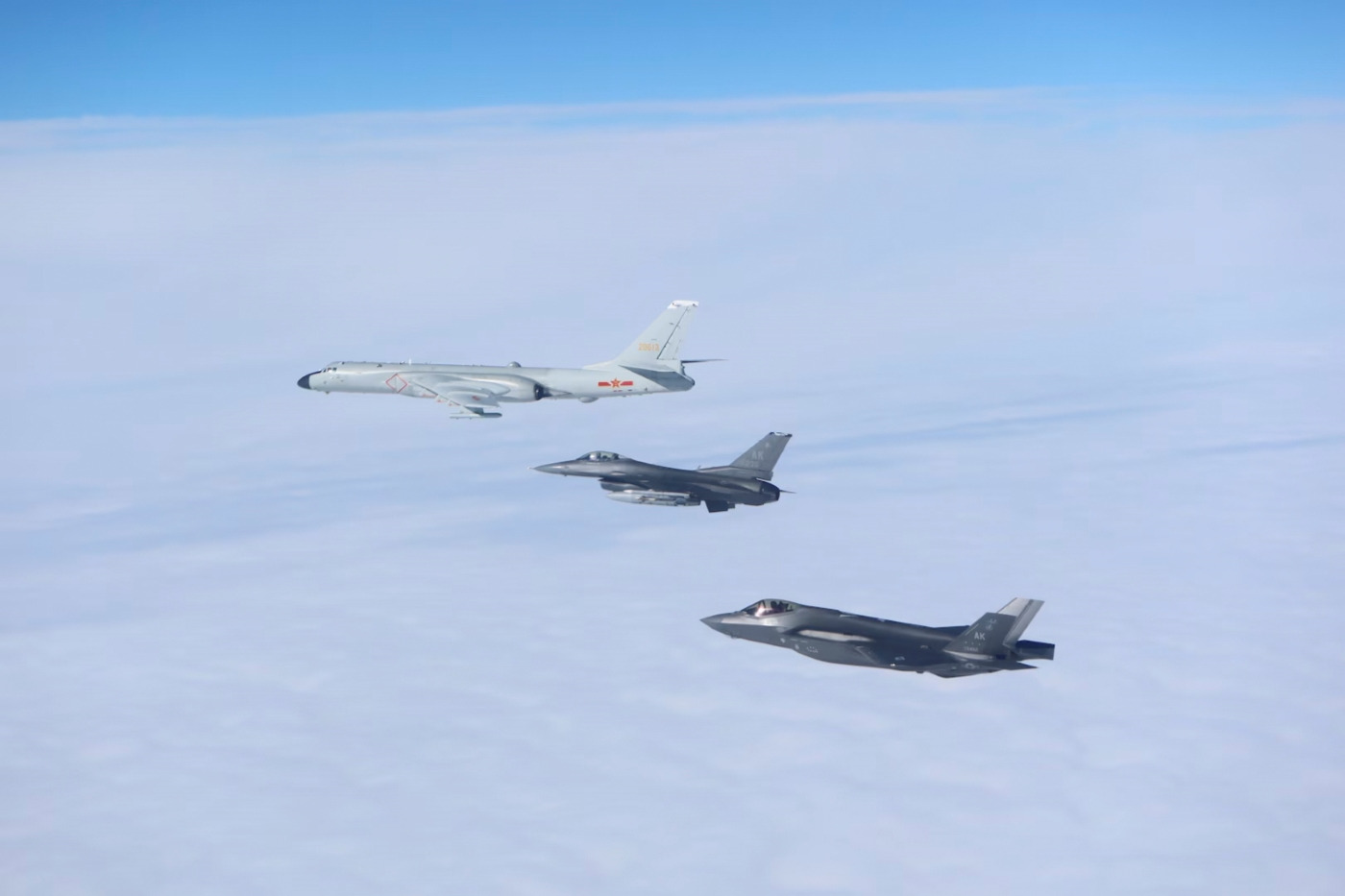
While the world's attention is focused on the Middle East as the next probable flashpoint, it would be wise to look to the skies over the Bering Sea, near the coast of Alaska.
China's People's Liberation Army Air Force is now getting a good look at the continental United States. And they are doing it from bombers flying in formation with their allies, the Russians.
Over the last number of years, China has been confronting Japan, the Philippines, and Taiwan with provocative naval and air exercises. Now add the United States to their list of targets. This time, however, they are working in close coordination with the Russians.
On July 24, the North American Aerospace Defense Command (NORAD) intercepted two Russian and two Chinese bombers flying near Alaska. Pentagon officials say this marks the first time our two adversaries have been intercepted while operating aircraft in a clearly coordinated flight meant to be just provocative enough to send a message.
The Russian TU-95 Bear and Chinese H-6 bombers did not enter U.S. or Canadian airspace. In addition, they were intercepted by U.S. and Canadian fighter jets, so it's not as if they were unobserved. But then again, that was not their intent.
The Chinese Defense Ministry responded with a statement that suggested there was nothing unusual or threatening about this sortie. Rather, it was "joint strategic aerial patrol in the relevant airspace of the Bering Sea." The Ministry's spokesman told the press that "[we are] further testing and enhancing the level of cooperation between the two air forces, as well as deepening strategic mutual trust and practical cooperation between the two countries."
"This action is not aimed at third parties, it is in line with relevant international laws and international practices and has nothing to do with the current international and regional situation," Zhang said.
Russia insisted the exercise was part of a 2024 military cooperation plan and "not directed against third countries."
However, the presence of Chinese aircraft appears to be a new development. In March, the head of US Northern Command, General Gregory Guillot, said China was pushing farther north into the Arctic and he expected to see aircraft there "as soon as this year potentially."
"It is a very big concern of mine."
China considers their country a "near-Arctic" nation and has worked to expand its presence in the far north, including through its cooperation with Russia.
At a time when China and Russia are watching our American democracy in turmoil, they are placing bets on whether they will confront a strong, resolute president in 2025 or one that has neither the skill nor the will to retain our nation's global leadership. During the next few weeks, Iran may very well test our nation's resolve. But in 2025, China and Russia will do far more than that. They will test our ability to defend our very future.
Lawrence Kadish serves on the Board of Governors of Gatestone Institute.


